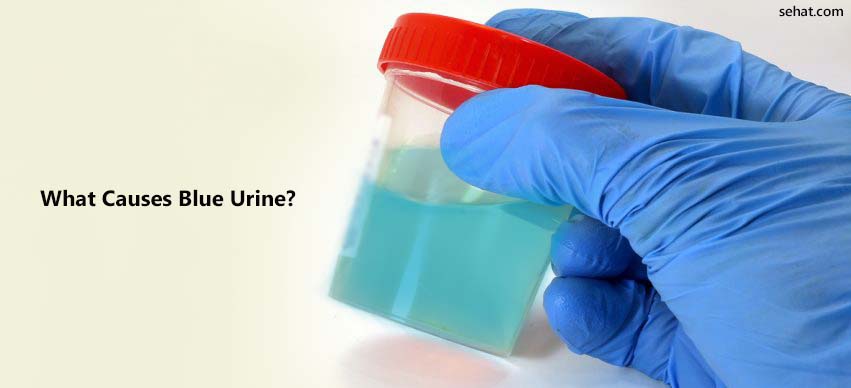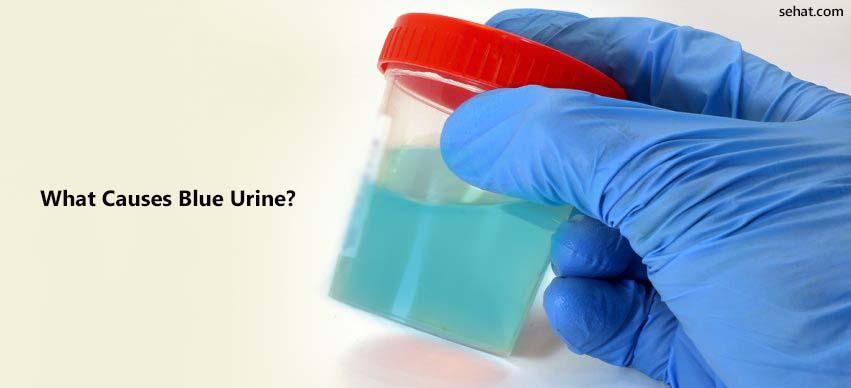How Communities Are Changing the Way We Think About Aging in..
8 Min Read


Urine not only expels the waste materials from your body, but it also tells about the overall status of your health. Alteration of color or smell may indicate the alteration in metabolic activity, which may be due to certain medications, food, or disease. For instance, blue urine may indicate bacterial infection and deep amber or orange color may be a sign of dehydration, The following article helps you to know what causes blue urine?
Different urine colors have different causes. In some cases, the color of the urine gets blue. There are various causes of blue-colored urine. The following are some of the reasons for blue urine;
Administration of methylene blue in certain indications such as in the treatment of pediatric and adult patients with acquired methemoglobinemia may lead to blue urine.
Formation of indigo through putrefactive processes in the intestine. In a patient, it was found that he has blue-colored urine due to the formation of indigo because of the putrefactive activity of E. coli in the intestine.
Medication such as amitriptyline, cimetidine, and indomethacin may also cause blue urine.
A bacterial infection caused by Pseudomonas aeruginosa may lead to blue or green colored urine.
Dyes that are used to diagnose the disease of kidney or bladder may lead to blue urine.
Eating food that is rich in artificial colors may also cause blue urine.
Other causes of blue urine include pyocyanin pigment, biliverdin, and Hartnup disease.
The frequency of urination depends upon several factors and is different for different people. Some people need to urinate for about 4 hours during the day while some have a frequency as high as 10. However, generally, the frequency of urination in a healthy person is 6-7 for 24 hours. The frequency depends upon the amount of fluid you take or the lifestyle you live. The frequency of urination may also increase due to certain medications such as diuretics indicated to treat high blood pressure. The frequency of urination also depends upon the age as well as the surrounding weather conditions.
The color of urine depends upon the hydration status of the body. If the body is well-hydrated, the color of urine could be light yellow while in a dehydrated state, the urine gets concentrated and the color becomes amber. The color of the urine in a healthy person is due to urochrome present in urine. Apart from light yellow to amber color, the color of urine also defines the status of the body. The color of the urine may change due to food or medications. However, the change in color may also indicate an underlying medical condition.
Whenever you have an urge to urinate, you should void your bladder as soon as possible. Holding the urine for a long time may lead to various side effects. The person may experience pain while urinating if he holds the urinary pressure. Although there is no authentic data that holding urine may increase the risk of urinary tract infection but it is advisable to avoid the holding especially by the people who have a history of frequent urinary tract infections. Holding urine for a long time may put pressure on bladder muscle and ultimately make them weak resulting in urinary incontinence. Retaining urine very often may also damage the pelvic floor muscles. It has been seen that retention of urine is a risk factor for developing kidney stones in people who have a prior history of developing kidney stones.
As age increases, the frequency of urination increases. This increase in urine frequency is due to various factors. As you age, the bladder muscles are not strong enough to hold the urine and thus an increased urge to urinate ensues. Also, the Antidiuretic hormone which regulates normal urination also decreases as we age.
During pregnancy, the bladder is under pressure due to the expansion of the uterus. More the expansion in the size of the uterus more is the risk of incontinence after delivery. During childbirth, to give way to the baby, the connective tissue stretches to their maximum limit and may not regain the old status. This may also result in incontinence after childbirth.
There is an increased frequency of urination during cold temperature and the phenomenon is termed a "cold-induced diuresis". In the cold temperature, the blood vessels constrict to increase the blood supply to various organs including the skin. This results in an increase in blood pressure. To compensate for this pressure rise, the kidney excretes an increased amount of fluid. Because of the increased amount of blood reaching the kidneys, the kidney must work more resulting in an increased volume of urine.
It is frightening to encounter red-colored urine. However, there may be many reasons that lead to red-colored urine. Various food items such as beetroot may impart a red color to urine. Some medications are also responsible for the red color of urine. Blood in the urine is due to a urinary tract infection or a prostate problem. A small amount of blood may also leak in urine due to strenuous exercise. If you notice blood in urine, immediately contact the best urologist in your area.
Whether the blue urine is a sign of something serious depends upon its cause. Generally, the blue urine is caused due to food colors, medications and dyes. However, there are few known diseases that may lead to blue urine. These diseases include Hartnup syndrome and Blue Diaper syndrome (Drummond's syndrome).